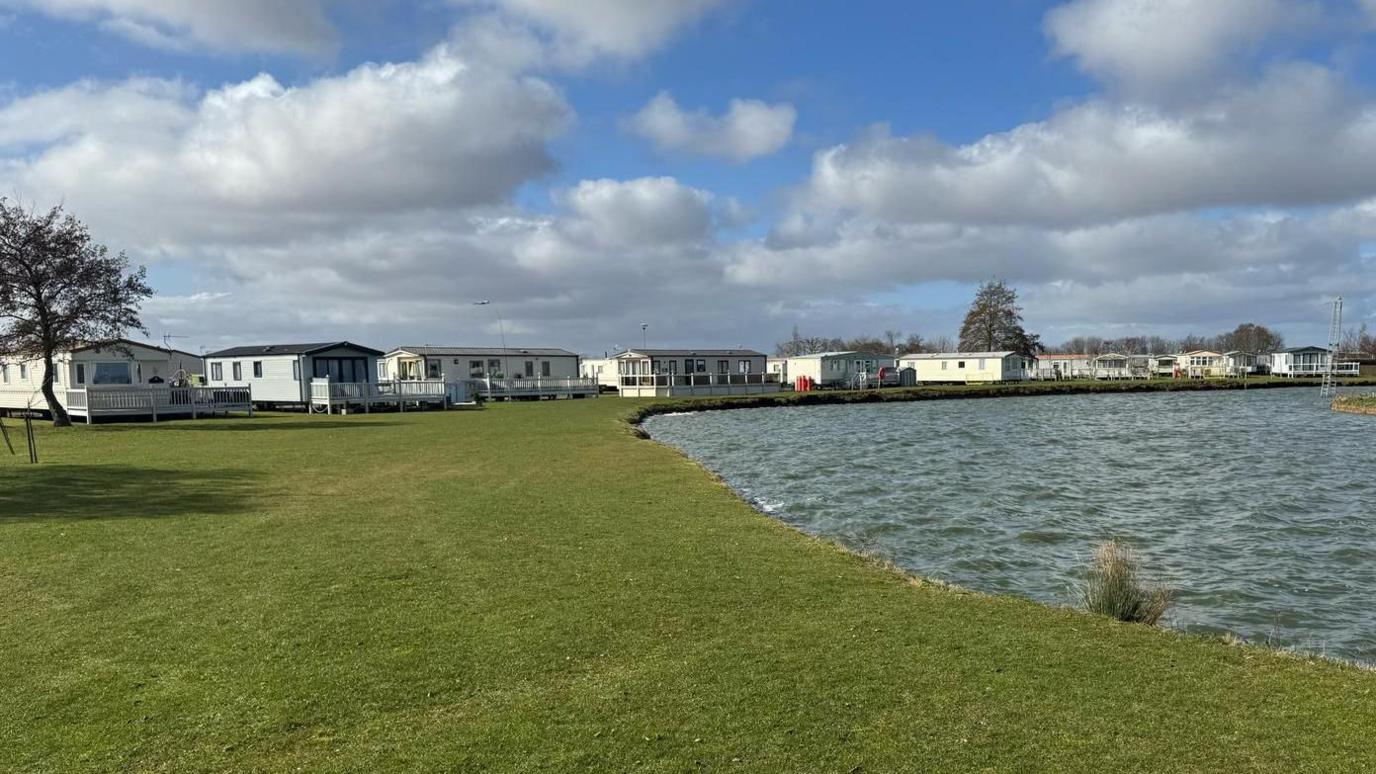E-scooters: 'You take one and two more appear'
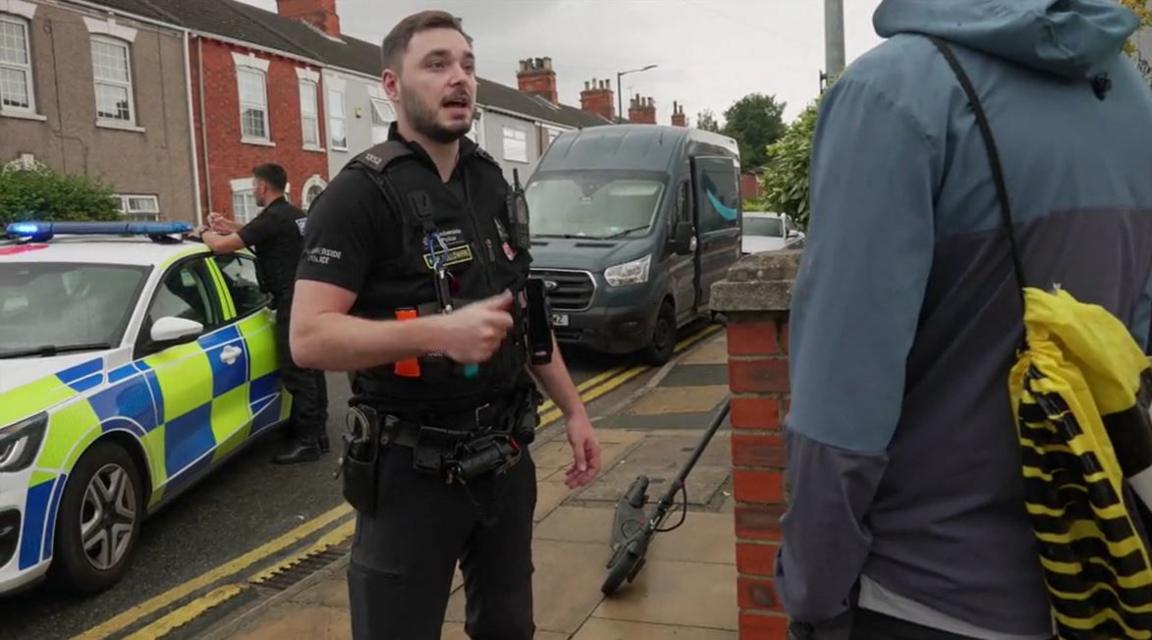
More than 20 illegal e-bikes and e-scooters have been seized in recent months as part of Humberside Police's Operation Yellowfin
- Published
More than 20 illegal e-bikes and e-scooters have been seized as part of a crackdown by Humberside Police.
During a day of action in Grimsby, officers seized an e-bike where the rider failed to stop, resulting in a "short pursuit", along with an e-scooter.
Grimsby neighbourhood beat officer Darian Hullett said the issue was so bad in the North East Lincolnshire town he could "probably spend his entire time on duty" going after illegal e-scooters.
"It seems to be that you take away one and two more appear," he added.
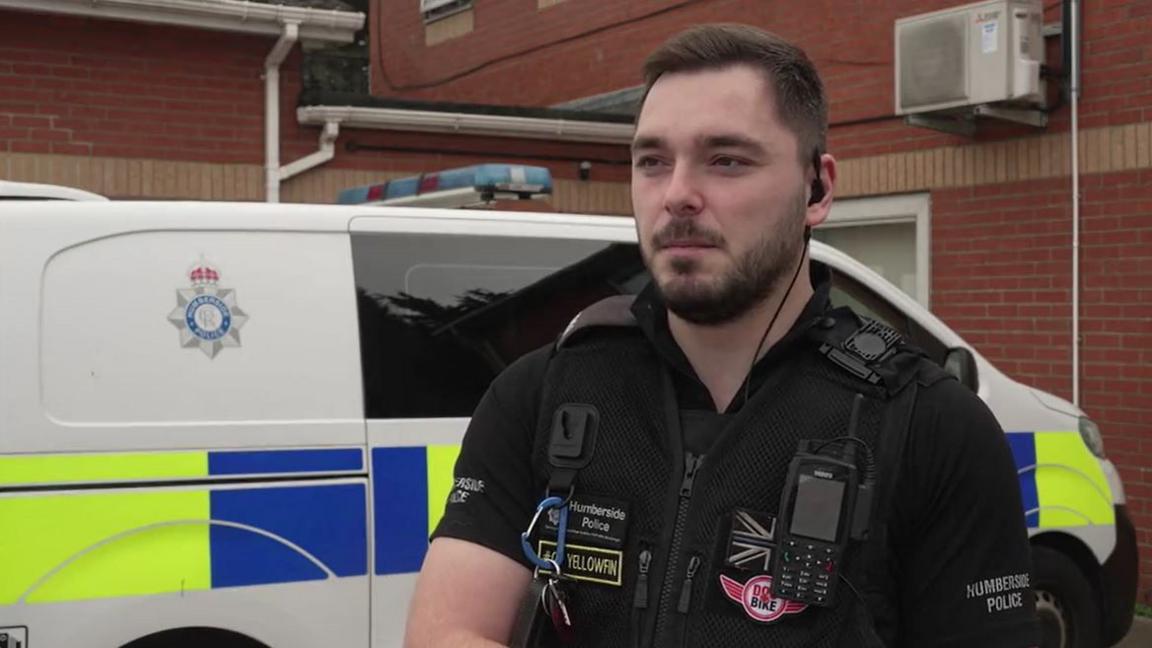
PC Darian Hullett said irresponsible riders were putting themselves and the public at risk
Between March and September, the force said it had seized eight e-bikes, two electric motorbikes, and 15 e-scooters as part of Operation Yellowfin, which aims to reduce the number of incidents and collisions involving these types of vehicles.
"Many riders remain unaware of essential regulations, with some failing to meet basic safety requirements such as displaying L plates, wearing protective gear, or ensuring their vehicles are correctly registered and insured," PC Hullett said.
"This lack of compliance creates significant risks - not just for the riders themselves, but for the wider community."
During a patrol in Grimsby on 29 August, officers seized an illegal e-bike which had twice the power output of a legal bike.
As a result, the rider was forced to walk home and the cycle seized ready to be crushed.
In another incident, a teenager had his e-scooter seized.
It followed a week-long exercise in Hull, during which Humberside Police confiscated nine illegal scooters from the streets.
An electric bike travelling at 30mph (about 48km/h) on a footpath on Beverley Road was also seized.
Privately-owned e-scooters are illegal on public roads, while government-approved rental vehicles are currently only legal within specific trial areas.
According to national legislation, the power output of the motor on an e-bike should be capped at 250 watts and should not be capable of propelling the bike any faster than 15.5mph (25km/h).
Listen to highlights from Lincolnshire on BBC Sounds, watch the latest episode of Look North or tell us about a story you think we should be covering here, external.
Download the BBC News app from the App Store, external for iPhone and iPad or Google Play, external for Android devices
Related topics
- Published27 August
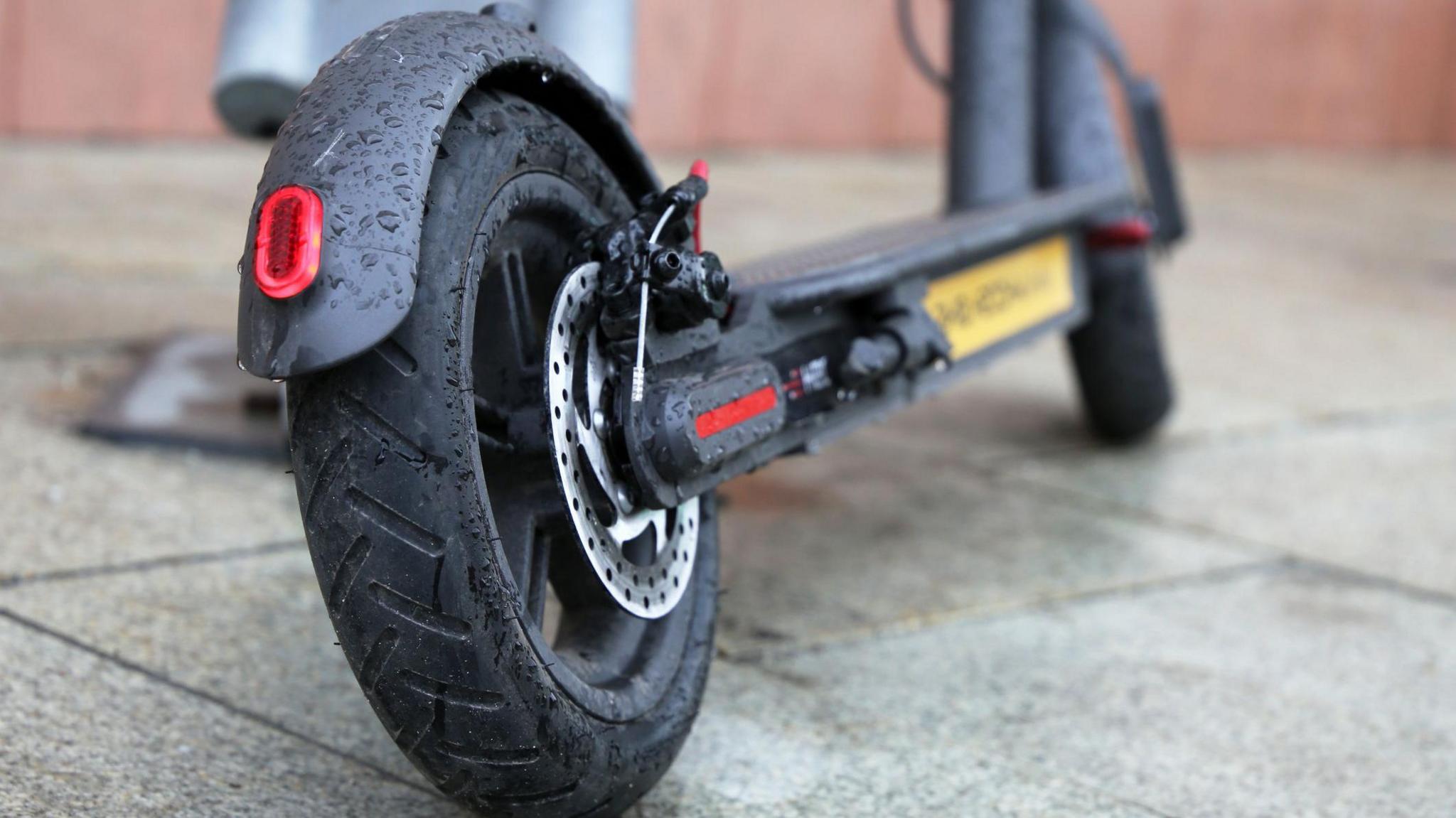
- Published16 May
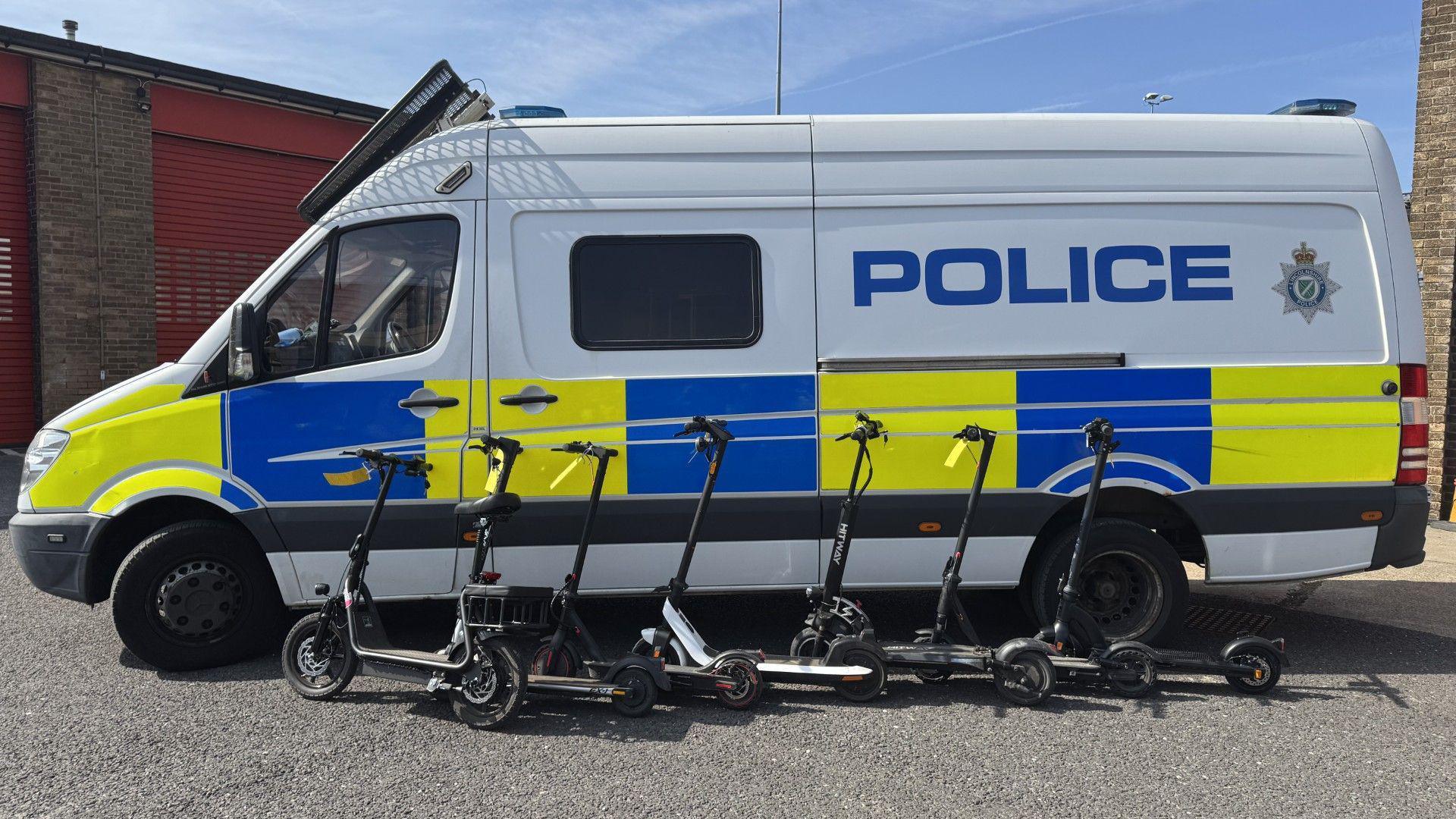
- Published11 March
